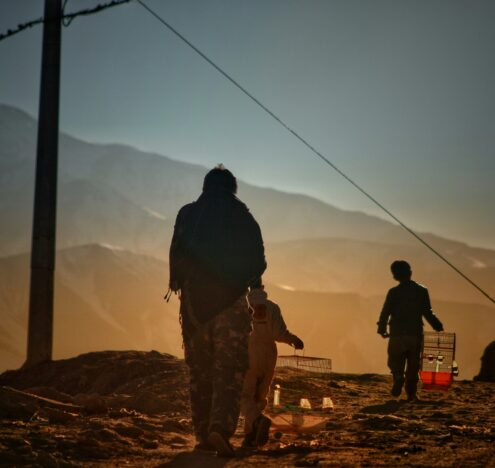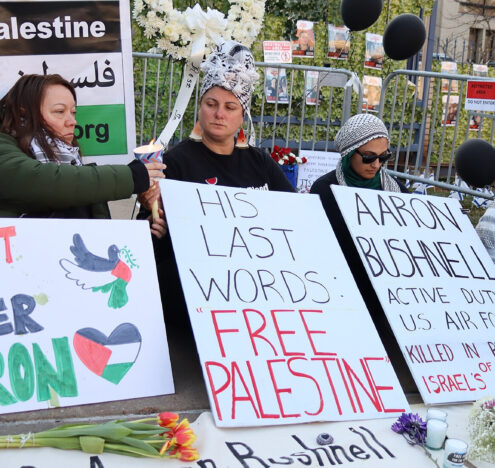Let’s be honest: the US-Taliban deal was not a peace agreement. It was negotiated without the participation of the Afghan government and civil society and therefore did not lay the foundations for a stable, secure, and just state. For the United States, it was supposed to be a face-saving way to withdraw troops from Afghanistan after an unsuccessful, nearly 20-year occupation.
But the prospects of an orderly and dignified troop withdrawal are quickly vanishing. If the rapid spike in deadly Taliban attacks against Afghan military targets didn’t make that clear, then the maternity ward massacre certainly should. More important than denying the United States the ability to claim any semblance of victory in Afghanistan, the faltering deal is crushing hopes for an inclusive and meaningful intra-Afghan peace process.
It was, perhaps, foolhardy to premise a US-Taliban deal on steps to be taken by the Afghan government, which was not party to the agreement. Under the accord, parts of which still remain secret, the Afghan government was to release 5,000 Taliban fighters and the Taliban to free 1,000 Afghan government troops by March 10. By the end of April, only a small proportion of those prisoners had actually been swapped, while deadly fighting surged.
The recent power-sharing agreement between Afghan President Ashraf Ghani and his rival, Abdullah Abdullah, offers a real glimmer of hope for the country’s future. To keep things on track, the United States should act in good faith to make good on its commitments and hold the Taliban to its. But should those efforts fail, the United States has but one viable option: continue the drawdown anyway.
In Afghanistan, as in Vietnam, the ideal of “peace with honor” is but an illusion — and a faint one at that.
In Afghanistan, as in Vietnam, the ideal of “peace with honor” is but an illusion — and a faint one at that. But there are ways to make the withdrawal more honorable, and to increase the chances of peace. They don’t involve more fighting.
First, the United States must ramp up bilateral and multilateral diplomatic efforts to promote broad-based talks among all Afghan stakeholders. It may take US and international prodding to ensure that women have a seat at the table and a voice in the proceedings. And although we do not have the power to dictate the outcomes, we can offer financial, technical, and diplomatic support to those who seek just and equitable solutions.
In addition to encouraging progress at the negotiating table, the United States can work with its friends and security partners to stop the flow of weapons and funds to militant groups that are likely to act as spoilers of peace. Foreign forces may not be able to stabilize Afghanistan, but at the very least they can stop destabilizing it.
Second, Congress and the administration should commit to providing long-term economic support for Afghan-led development efforts. For many years the United States poured too much money too fast into Afghanistan, causing waste and inefficiency and fueling rampant corruption and kleptocratic networks. As the Special Inspector General for Afghanistan Reconstruction concluded, “the large sums of stabilization dollars the United States devoted to Afghanistan in search of quick gains often exacerbated conflicts, enabled corruption, and bolstered support for insurgents.” Instead of doing more harm, US aid agencies should focus their support on smaller, tailored programs that reflect local priorities, strengthen local ownership, and promote oversight and accountability.
Third, America must recognize that militarized counterterrorism has been a failure in Afghanistan and elsewhere. Despite the presence of thousands of US troops and the provision of billions of dollars in military training and equipment, Afghanistan was the country most affected by terrorism in 2018. And after footing the $6.4 trillion bill for endless wars that have cost over 800,000 lives, all American taxpayers have to show for it is a fivefold increase in the annual number of terror attacks worldwide. Meanwhile, the United States has found itself shockingly powerless to defend against real threats to the health and security of Americans – such as COVID-19.
Withdrawing from Afghanistan responsibly means accepting that the use of military force has not and will not bring peace to Afghanistan, and that years of war and occupation confer upon the United States a special obligation to promote healing. Retaining a residual counterterrorism force or continuing drone strikes will only exacerbate grievances and fuel the cycle of violence and retribution that has torn apart Afghan society. The United States can restore its honor in Afghanistan by working in cooperation with the international community to encourage an intra-Afghan peace process, support Afghan-led development, and mitigate the damage that has resulted from decades of fighting. As a COVID-19 outbreak looms, the cure is not “cut and run” but cooperate and repair.
Diana Ohlbaum directs FCNL’s foreign policy lobbying team and leads an effort to replace the current US foreign policy paradigm of military domination and national superiority with a more ethical and effective one based on cooperation and mutual respect.





















